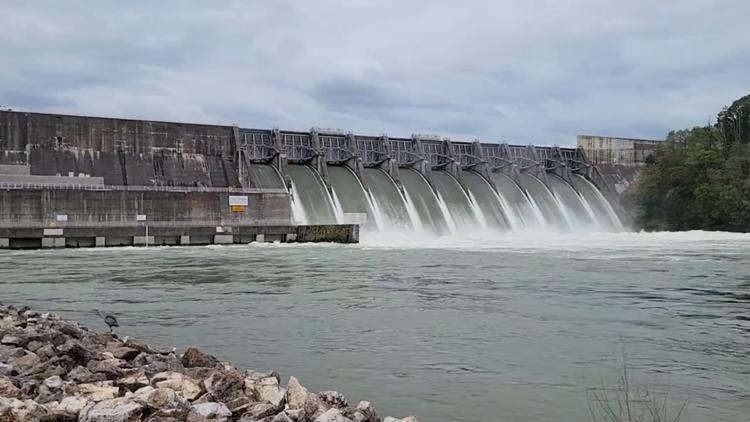KNOXVILLE, Tenn. — The Tennessee Valley Authority said Monday that the Douglas Dam and Watauga Dam were releasing higher-than-normal volumes of water to make room for water storage following historic flooding. By creating space for water to be kept in, the TVA hopes to prevent additional floods. As a result, it said river flows would continue to be high.
It said the Fort Loudoun Dam Lock in Lenoir City and the Tennessee River Gorge below Chattanooga would be closed to commercial navigation because of the high river flows. Darrell Guinn, from the TVA River Forecast Center, spoke during a video shared on social media and said river levels would continue to be high while the TVA works to prevent more flooding.
"Most of our tributaries have crested, but some of those reservoirs remain elevated, though. Watauga Reservoir and Douglas Reservoir continue to be higher than normal. We are releasing higher-than-normal amounts out of Watauga and Douglas both, and that's to recover the flood storage that we need in preparation for any additional rainfall that we may receive in the near future," he said.
He said other reservoirs like South Holston, Cherokee and Norris were still elevated. However, he said the TVA would continue releasing water there to recover flood storage.
"With the high flows flowing into the Tennessee River system starting in Knoxville, we don't anticipate reaching flood stage anywhere along the Tennessee River," he said.
He said areas like Whitesburg, Huntsville, Florence and Savannah, Tennessee, would stay well below flood stage while TVA releases the water. People can stay updated on lake levels online.
Parts of upper East Tennessee saw historic flooding that destroyed roads and killed several people. Damage was especially severe on the North Carolina side of the mountains, especially in the Asheville area.



